RV Jobs: Finding Work While Traveling
The idea of my home wheels often strikes a chord with adventurers and freedom-seekers like me. The RV lifestyle presents a unique blend of travel and comfort, allowing people to explore without forfeiting the amenities of home.
Combining work with this nomadic lifestyle is not just a dream; it’s a practical reality for many. As I balance travel adventures with income generation, work becomes part of the journey rather than a limitation.
When you imagine waking up to a new backdrop every few days while still earning a living, it’s clear why finding work while traveling in an RV can not only support your travels financially but can really enrich the entire experience. It lets you soak in diverse cultures, meet new people, and build skills in a variety of settings.
Pam and I have been at this full time RV living, traveling the country, and working as we do that since 2008. It’s not hard to secure a work camp job or run a small business from the comfort of an RV home. But it does take diligence and planning to make it all come together.
In the coming section, I’ll cover the types of jobs that could be your ticket to maintaining this lifestyle, ensuring that you have the freedom to roam while keeping your finances in check. Stay tuned.
Types of Jobs Suitable for RV Travelers
RV travel offers the allure of freedom and adventure, but balancing the nomadic lifestyle with a steady income calls for some creativity. The type of job you might consider depends on your skills, interests, and how much time you wish to dedicate to work versus exploration. Here are some popular job categories for RV travelers.
Seasonal work is a favorite among RVers since it aligns well with the idea of ‘moving with the seasons.’ You could find yourself working at a southern RV resort in winter or an RV beach resort during summer. From leading outdoor activities and working in the front office to serving in hospitality or even maintenance, these jobs are abundant in various locations and typically last for a few months at a time.
The rise of remote work has opened up an array of opportunities for people who live on the road. If you have skills in writing, graphic design, programming, or consulting, your office could be anywhere with an internet connection. Remote work offers flexibility that fits neatly into the RV lifestyle as long as you can maintain a reliable Wi-Fi connection.
Another path is the world of work camping, where you exchange labor for a place to park your RV and sometimes additional payment. Positions often involve groundskeeping, office work, or customer service at campgrounds, and the sense of community in these settings can be very enriching.
Lastly, for those looking to be their own boss, RV travel is conducive to freelance jobs or running a small online business in affiliate marketing. That can allow you to make money 24/7, even while you are enjoying RV travel or sleeping.
The independence matches well with the on-the-road life, allowing you to choose projects aligned with your schedule and travel plans. Success in freelancing requires discipline and good client communication, but it can be very rewarding both financially and personally.
Where to Look for RV Jobs
I understand you’re eager to hit the road and find work that complements your RV lifestyle. Finding the right job is crucial, and it’s all about knowing WHERE to look. One of the best places to start is online job platforms tailored to RVers.
Paid websites like Workamper News and CoolWorks cater specifically to mobile workers looking for gigs in campgrounds, national parks, and tourist attractions. They’re valuable resources packed with listings that might be the perfect fit for your travels.
But don’t underestimate the power of community. Tapping into RV communities, forums like Escapees RV Club, and social media groups can be incredibly helpful. It’s more than just exchanging tips; it’s about forming connections that can lead to job opportunities. Word of mouth is potent among RVers, so don’t be shy about reaching out and asking for leads.
That being said, there’s merit in the direct approach as well. Contacting campgrounds and RV parks directly might land you a work camping job. These places might not always list their openings online, so calling or sending an email can show initiative and set you apart.
At the time of this writing, Pam and I are nestled away in a nice RV Park and Golf Resort in northern Michigan. We are work camping at this location. We secured the work camping job by calling the RV park for a three-month reservation and then asking if they needed any work campers.
As it turned out, they did want a part-time female worker to help out with housekeeping. That meant we could trade work hours for an RV site for three days a week for $1,400/month.
Lastly, keep your eyes peeled for local opportunities in the towns you visit. Small businesses or seasonal employers might welcome short-term help. Checking community bulletin boards or local classifieds can uncover hidden gems not advertised on larger platforms.
As you consider these options, remember to focus on job prospects that align with your skill set and traveling schedule. The goal is not just to work; it’s to find work that fits seamlessly into your RV lifestyle.
Preparing Your Toolbox: Essential Skills and Qualifications
If you’re ready to hit the road and work along the way, it’s crucial to equip yourself with a versatile skill set and, where necessary, certain qualifications. I’m here to help you identify the skills that align with RV-based work and present them effectively.
For most RV-specific jobs, interpersonal skills like communication, adaptability, and problem-solving are key. If you’re drawn to campground jobs, skills in maintenance, customer service, and basic accounting can be very useful.
Technical abilities are in demand in the world of remote work. Familiarize yourself with digital tools such as project management software and remember the essentials, such as a reliable laptop and internet connection.
Holding certifications can give you a competitive edge in the job market. Consider obtaining a first aid certificate, a professional driving license, or any other certifications relevant to your field and RV life.
Your resume should reflect your dynamic lifestyle and the unique skills it has honed. Highlight any previous remote work experiences, your ability to work independently, and your success in adapting to new environments.
Pam and I have found that due to our extensive RV knowledge and years of living the full time RV life, we are always greeted with enthusiasm with any work camping job!
I recommend continuous learning and skill-building. It’s not only enriching but also enhances your professional profile. Take advantage of online courses while you travel—they’re a great way to stay updated in your field.
Navigating Legalities and Logistics
If you are considering pursuing work while traveling in your RV, it’s essential to understand the legal and logistical considerations that come with a mobile lifestyle. Dealing with taxes can be confusing, especially if you’re earning income in different states. You’ll need to keep track of where you earn your income to accurately file state taxes when required.
Also, consider how you’ll manage your finances. Whether you’re conducting business from the road or working remotely for a company, setting up a reliable system for invoicing, payments, and banking will save you many headaches. It’s helpful to use online banking services and automated billing systems.
Don’t forget about health insurance. Many RV workers use the Affordable Care Act’s marketplace to find plans that work across different states. Alternatively, some organizations, like the Escapees RV Club and FMCA offer health plans tailored for those living a mobile lifestyle. Insurance is a must when your home is also your vehicle.
Business structures can be another concern. Depending on your work, it may be advantageous to establish an LLC or other business entity. This can provide tax benefits and separate personal and business assets. However, the laws around this vary by state, so seek professional advice to choose the best structure for your situation.
Pam and I spent a lot of time preparing our plan for working while traveling and living full time in our RV. We discovered that setting up our small business made working in any state very easy. We also use the services of a professional CPA and legal firm to ensure we are abiding by the policies required by the IRS when it comes to S-Corporations.
Running a small business can be as easy as being a sole proprietor in your new business or taking advantage of the tax benefits of a more organized business entity like an LLC (Limited Liability Company).
Keeping up with changing work permit and licensing requirements is also crucial. What’s permissible in one state may not be in another. Be proactive and research the local laws and regulations of your anticipated locations to stay compliant. Failure to do so can result in fines and legal challenges. The IRS is the best source to ensure that you are compliant when it comes to taxes.
Lastly, record-keeping is vital. Store important documents electronically when possible, and use cloud storage for easy access. Good record-keeping will make tax time less stressful and can be invaluable if you face questions about your work or travel history.
Real Stories and Tips from Successful RV Workers
Hearing firsthand from those who’ve successfully merged the RV lifestyle with a steady stream of work can be incredibly inspiring. They offer more than just success stories; they provide a roadmap for others to follow.
Many other full-time RVers I’ve spoken with emphasize the importance of flexibility and adaptability. They’ve learned to pivot when job opportunities dry up or when unexpected challenges arise. A common piece of advice is to have a backup plan and cultivate a diverse skill set that opens up multiple avenues for income.
Overcoming challenges, like inconsistent internet connectivity or finding jobs in peak seasons, requires resilience. Successful RV workers often share how they’ve adapted their strategies like investing in reliable mobile hotspots or establishing connections with multiple employers.
Setting clear goals and boundaries is often key to long-term sustainability in this nomadic work lifestyle. The individuals I’ve encountered don’t just chase any job; they look for work that aligns with their travel ambitions and personal values.
For anyone considering embarking on this path of finding work while RV traveling, the consistent advice is to plan thoroughly but be ready to embrace change. Joining RV communities, online forums, and groups can provide support and access to a wealth of shared knowledge. Stay proactive in learning, be resourceful, and remember that success in RV work is as much about the journey as it is about the destination.
To learn more about us you can click here!


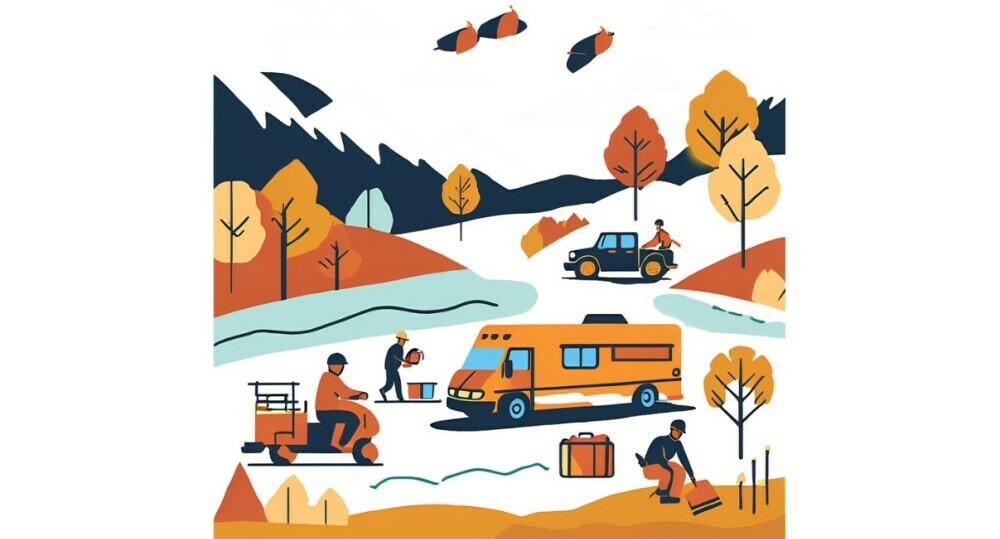
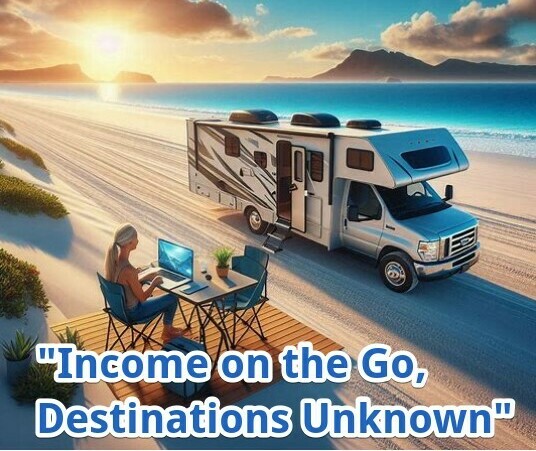





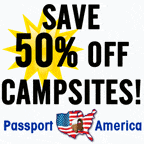
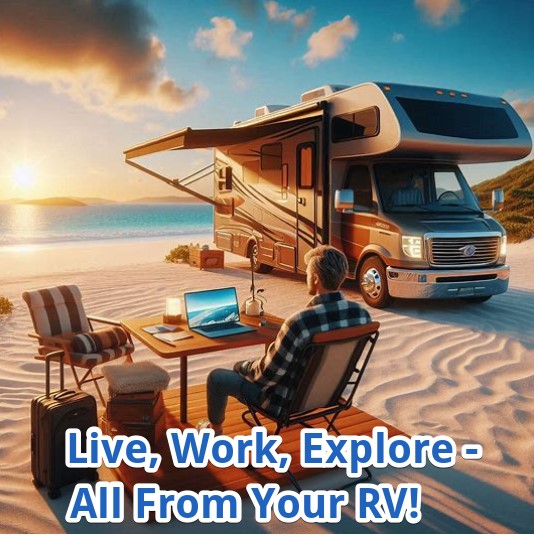
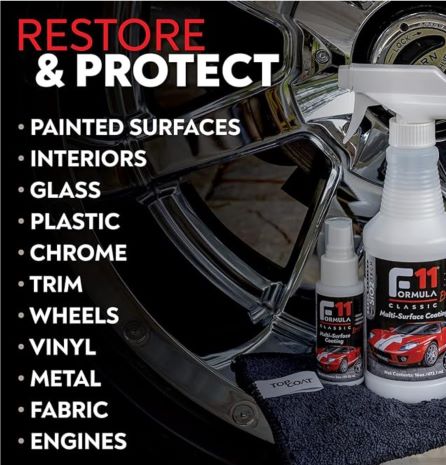
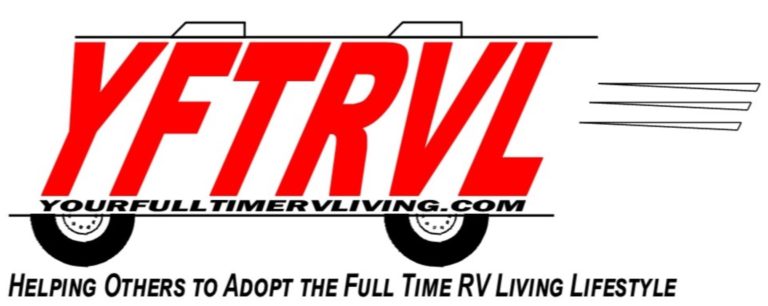



Recent Comments